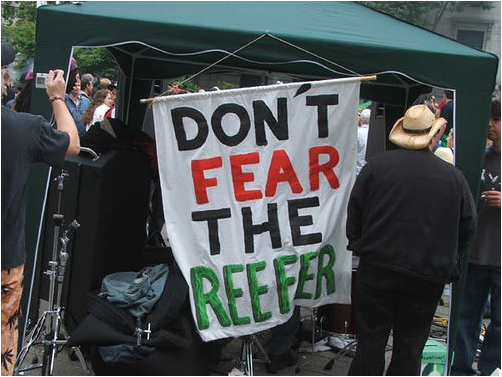Why I'm Voting in Favor of Question 3
 Photo by cwmeek via Flickr
Photo by cwmeek via Flickr
In Question 3, voters have a unique chance to directly enable the sick and suffering in Massachusetts to get a medicine that helps them. Voting yes helps these people get relief where they couldn’t before. The evidence is sound: Marijuana can be a medication, and to deny suffering neighbors the only medicine that could help them is unacceptable.
That doesn’t mean medical marijuana legislation is free of baggage. As I detailed in my recent story “Lost in the Weeds,” it’s possible to feel deeply ambivalent about marijuana in your own life. Since legalized marijuana for medical purposes is indeed a step toward full-scale legalization, it’s worth picking through that ambivalence. But at the end of the day, the arguments to keep marijuana an illegal drug on par with heroin or cocaine are weak. The reason is that medical marijuana boils down to personal freedom.
It’s not the government’s job to save people from themselves. By contrast, it is the government’s job to save people who can’t be expected to save themselves, by which I mean kids. There have been numerous effective efforts to curb teenage drinking and smoking, without feeling the need to ban those things for adults. In America, we have the right to self-determine how we want to spend our lives—within reason. Certainly, if an adult wants to smoke pot every day, that is a reasonable choice to make.
The problem is that government has been adamant in its refusal to take a second look. Even opponents of medical marijuana—the Massachusetts Medical Society, for one—acknowledge the potential medicinal properties in cannabis’s active ingredients. But without marijuana being reclassified as safe for research, scientists will never be able to unlock those properties at an acceptably fast pace.
Voters shouldn’t really be in the business of approving medications, but there is simply no other option. If the government won’t reconsider its classification of pot, then voters have to force its hand. Sixteen states and D.C. have already legalized medical marijuana. If Massachusetts and Arkansas pass it, that’s 18, nearly half the states in the country. At some point, it likely will become more difficult for politicians to continue their draconian marijuana ban without seeming out of touch—or at least I hope so.
At that point, elected officials can chose to regulate it like alcohol or something else. That’s a conversation for another day. But I hope they do it soon. The state’s medical marijuana bill doesn’t include funding to get out an anti-marijuana message to kids, which means kids will be more aware of pot but perhaps without as strong a negative reinforcement against it as is necessary or desirable. As I said before, there has to be personal responsibility. Parents—not the government and certainly not the sick and suffering—need to shoulder that burden.
It’s unfair and bordering on immoral to hold the sick and suffering hostage just because we can’t reach our kids. That’s why I’m voting yes on Question 3.
Disclaimer: This opinion is the author’s and doesn’t imply any kind of endorsement or editorial stance from Boston magazine.


